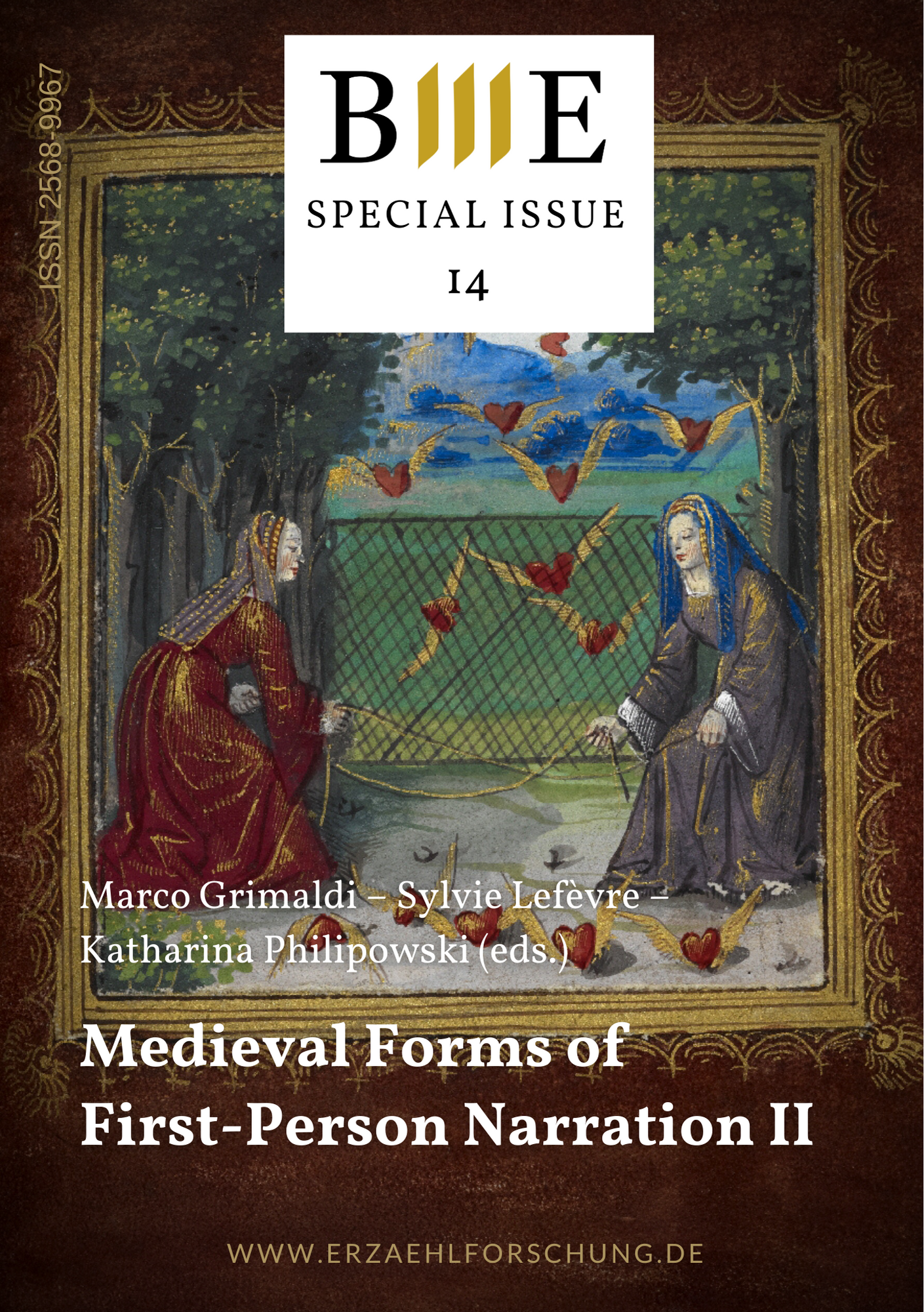Parler en doy comme comme clerc d’armes: miroitements du sujet dans le débat poétique du XVe siècle
DOI:
https://doi.org/10.25619/BmE20225242Abstract
The poetic debate as a genre is analyzed in this paper as an example of the integration of lyric dialogs into the form of first-person narrative. We try to explore the impact of this hybridization, especially in Christine de Pizan’s three love debates. The transposition of lovers’ dialogs seems to transform the status of the I, as the narrator does not appear as a clerk whose authority is linked to knowledge, but as a character involved in a scene and whose role is also to articulate divergent discourses. First, we explore the narrativization of the jeu-parti and the pastourelle in the debates of Christine de Pizan and Guillaume de Machaut, showing that this rewriting leads to structural modifications in narration and elaborates the figure of an ambushed narrator, eager to appropriate other languages or discourses. This scenography emphasizes one of the most important issue of the debate genre, the art of writing the other’s voice. The hybrid and polyphonic nature of the character’s voice is in fact object of reflections in the fifteenth century, particularly in the debate over the ‹Roman de la Rose›: Christine de Pizan expresses in this framework her perception of the double speech inherent to characters’ discourses, elaborated according to conventional representations of social and moral types, but at the same time reflecting the author’s intentions. The knight of the ‹Debat de deux amans› is analyzed here as an example of these inner contradictions within the character’s speech. As a consequence, the narrator’s implication in the dialog shades the debate as a whole: claiming to be outside and neutral, but appearing also as a character, the narrator seems no more to embody the authority and undermines the universality of knowledge: the debate can be considered as the expression of the limited point of view of an individualized character. The poetic love debate then reveals in the frame of first-person narrative a form of critical integration of other voices, which in fact weakens the didactic impact of the issues at stake: instance of subjectivity, the narrative I is also shaped by the lyric expression of desire and exemplifies the impossible neutrality of knowledge.
Downloads
Veröffentlicht
Ausgabe
Rubrik
Lizenz
Copyright (c) 2022 Laëtitia Tabard

Dieses Werk steht unter der Lizenz Creative Commons Namensnennung - Nicht-kommerziell - Keine Bearbeitungen 4.0 International.





